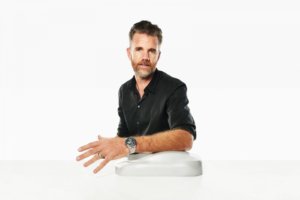
“Happiness is the moment when what you think, say and do in harmony.” -Mahatma Gandhi
Gandhi was completely right. When you don’t act in accordance with your values and goals, you experience internal conflicts.
You are working on your project. You are together with your loved ones. You are eating healthy or doing other things. So you are somehow knowingly acting in a contradictory way.
As most people do, you can justify your contradictory behavior and convince yourself that you are on the way to your dreams. But when you take an honest look at yourself in the mirror, you will see how you have deceived yourself.
Your actions directly translate into your results. When you consciously sabotage yourself, you cannot fully trust yourself. This will create identity confusion.
Little things create big things. You have to start simple. Do not constantly seek motivation and momentum in yourself. These are very unstable emotions that change momentarily. It doesn’t matter how much you have them right now. The important thing is this. If you don’t protect the garden of your life, you’ll lose it. This is shaped by what you do daily.
How close are you to your values and goals?
How much internal conflict do you experience?
Everyone’s behavior often conflicts with their values and goals. 100% perfection should never be the goal. But we should also know that the consistency and implementation of our values and goals create significant momentum and results.
As Aristotle said:
“You are what you do over and over again.”
Or perhaps Albus Dumbledore puts it best:
“It is our choices, not our abilities, that show what we truly are.”
We live our lives in 24-hour periods.

We all have 24 hours a day. So if your days aren’t good, don’t expect your life to be good. Success is inevitable if you organize to manage your days.
How was your day today?
Seriously.
Take a look at everything you’ve done today. Have you acted like the person you wanted to be?
Where will you end up if you spend every day like today until next year?
If you want your goals and dreams to happen, how different does your ideal day have to be from today?
What does a “normal” day look like to achieve your dreams?
One of the best ways to consciously design your ideal life is to start with your ideal day.
What activities should you do every day to live the life you want exactly? You may be doing well right now on the way to the ideal day. But do they really get you closer to your dreams?
Your ideal day should be based on your own view of the “good life”. Because you are the only one who defines happiness and success for yourself.
For example, one day of successful psychologist Benjamin Hardy goes like this:
● 8 hours of deep and healthy sleep.
● Eating pattern that includes healthy and essential nutrients. He eats at least one meal a day with his wife and children.
● 30–60 minutes of exercise.
● 15-30 minutes of prayer and meditation (no smartphone).
● 2-4 hours of participatory learning (no smartphone).
● 2-3 hours of operation.
● 2 hours spent with children (no smartphone).
● 1 hour alone with spouse (no smartphone).
● Eating pattern that includes healthy and essential nutrients. He eats at least one meal a day with his wife and children.
● 30–60 minutes of exercise.
● 15-30 minutes of prayer and meditation (no smartphone).
● 2-4 hours of participatory learning (no smartphone).
● 2-3 hours of operation.
● 2 hours spent with children (no smartphone).
● 1 hour alone with spouse (no smartphone).
The order in which these actions occur is not important. You can’t live two days in precisely the same way anyway.
Successful people agree on one thing about planning their day: how you wake up in the morning largely determines the rest of your day. Generally, if you wake up early with a purpose, the rest of your day will go much better. But if you wake up reactive, it will be harder for things to go right.
Benjamin Hardy says he can’t find a scientific reason for this. But he says it’s a holistic one. Wake up, set yourself up for success, drive your body into intense fitness, and then get down to business! So these are all parts of a whole. A chain!
One more thing is certain. How we spend our time is in our control. If we refuse to believe that this is so, we have an external and harmful mechanism to control us: the victim mentality. We will never have the power to change our lives until we can honestly look in the mirror and admit that we are the cause of everything.
What does your ideal day look like?
How often do you have your ideal day?
If you were to live your perfect day constantly, where would you be a year from now? Where would you be in five years?
Where can you start?
1) Take a few moments to imagine what your ideal day would look like.
2) Make a list of activities that would be on your ideal day.
3) Keep track of how you spend your days. As you begin to observe your time and become conscious, you will be surprised at how contradictory what you do with your dreams.
Of course, these are easy to say, but it will not be easy to put them into practice. But living consciously and harmoniously is entirely possible. It’s entirely possible to replace bad habits with good ones. And it is completely possible to become the person you want to be.
Motivation and Self-Control Theory
When your goals are clear, intrinsically motivating, and time-bound, you’ll keep going until you’re successful.
If you lack motivation, there is something wrong with your goals. Either you have the wrong goals, they are not specific enough, or the timeline is not precise enough. (see Parkinson’s Law)
According to a study, self-regulation is the psychological process that decertifies the discrepancy between our goals and our behavior. The ignition of our motivation helps us get from where we are to where we want to be.
Instead of waiting for ideal conditions, plan for the worst. Exaggerate these things instead of underestimating how much time and effort something will take.
Application Intentions
Of course, achieving your goals is not so easy. If it were, everyone would be successful. People often fail to deal with self-control issues while aiming for their goals.
A lot of research has tried to determine: How do you keep striving for a goal when people are struggling to stay motivated?
The answer is what psychologists call practice intentions, and it is clearly visible in athletes of sports categories whose endurance is important. When a marathon runner starts a tough run, he sets the conditions before he decides to quit. For example: “If I completely lose my field of view, I will stop.
If you do not determine the conditions under which you will stop in advance, you will stop maturing. According to a study, most people choose to stand at 40 percent of their actual capacity.
But the theory of intention to practice goes even further.
Not only do you need to know the conditions to let go, but you also need to plan for goal-directed behavior when faced with opposing conditions.
The following story might be a good example:
A teenager named Jesse has been an avid smoker for over a decade and smokes several packs a day. Three years ago, he chose the quarantine method by getting professional help to get rid of his addiction (The addict is locked in a room and left to his fate. Usually, the process is completed within 48 hours from the moment of crisis).
“If I was a smoker, I’d light one right now,” Jesse says whenever he’s stressed or angry about something, even though he’s quit smoking. Then he continues to live his day.
In other words, quitting smoking is a goal, but you need to determine in advance how you will behave in the face of events that will trigger it.
You can’t just want to be successful. You have to plan and prepare for the worst.
You will go off the rails often. You need to prepare for the moments when you are not motivated. You can do this by creating triggers that automatically re-trigger your motivation. For example, some of us may be motivated by reading motivational words. Some of us may be influenced by a movie character. Some of us may be feeling motivated by personal development books.
Think about the challenges you will face on the way to your goals.
Imagine all the challenges you can think of. Create proactive responses to each. This way you will be ready for battle. As Richard Marcinko said:
“The more you sweat in training, the less you bleed in battle.”
Put your plans into action when you encounter these challenges.
Conclusion
How was your day today?
What will happen yesterday?
How you spend each day is a clear indication of who you are and who you will be.
It is not enough to want a better future. You need to know what the future looks like and start living that way today.
Winners act like winners before they start to win. If you don’t act like a winner today, you won’t be a winner tomorrow.













